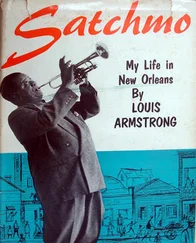Elbert L. Watson - Tennessee at the Battle of New Orleans
Здесь есть возможность читать онлайн «Elbert L. Watson - Tennessee at the Battle of New Orleans» — ознакомительный отрывок электронной книги совершенно бесплатно, а после прочтения отрывка купить полную версию. В некоторых случаях можно слушать аудио, скачать через торрент в формате fb2 и присутствует краткое содержание. Жанр: foreign_prose, История, foreign_edu, foreign_antique, на английском языке. Описание произведения, (предисловие) а так же отзывы посетителей доступны на портале библиотеки ЛибКат.
- Название:Tennessee at the Battle of New Orleans
- Автор:
- Жанр:
- Год:неизвестен
- ISBN:нет данных
- Рейтинг книги:5 / 5. Голосов: 1
-
Избранное:Добавить в избранное
- Отзывы:
-
Ваша оценка:
- 100
- 1
- 2
- 3
- 4
- 5
Tennessee at the Battle of New Orleans: краткое содержание, описание и аннотация
Предлагаем к чтению аннотацию, описание, краткое содержание или предисловие (зависит от того, что написал сам автор книги «Tennessee at the Battle of New Orleans»). Если вы не нашли необходимую информацию о книге — напишите в комментариях, мы постараемся отыскать её.
Tennessee at the Battle of New Orleans — читать онлайн ознакомительный отрывок
Ниже представлен текст книги, разбитый по страницам. Система сохранения места последней прочитанной страницы, позволяет с удобством читать онлайн бесплатно книгу «Tennessee at the Battle of New Orleans», без необходимости каждый раз заново искать на чём Вы остановились. Поставьте закладку, и сможете в любой момент перейти на страницу, на которой закончили чтение.
Интервал:
Закладка:
IV
While William Carroll and his men were plying their way down the Mississippi, John Coffee and his mounted militiamen were making their way toward Sandy Creek. The 16-day march was worse than any Coffee had ever experienced, because the area was interlaced with streams and covered with heavy undergrowth. 15 15 John Coffee to Mary Donelson Coffee, Sandy Creek, December 15, 1814, in Tennessee Historical Magazine , II (1916), 289. The line of march was almost parallel to the sea coast, about 40 or 50 miles from the Gulf.
Drenching rain fell for 20 successive days. At Sandy Creek, where quantities of corn had arrived from Tennessee, the men ate their first adequate meal since leaving Pensacola and the horses were foraged. Here they impatiently awaited further word from Jackson.
By now the British plan was becoming clear to Jackson, who hastened from Mobile to New Orleans. There, on December 2, he found the local situation one of general turmoil and confusion. The citizens appeared in a fighting mood and, on the whole, received him enthusiastically.
Jackson’s problems, however, increased immediately. There were only about 700 regular United States troops in the city—hardly enough to pose a threat to an invading veteran army—and the situation was made more difficult when the New Orleans militia refused to serve under United States officers. The offer of service by the Baratarian pirates made through the local Committee of Defense was refused by Jackson because the pirates were at that time being prosecuted in a Federal court. Since the pirates possessed artillery in considerable quantities and were proficient in its use, the Committee next turned to Federal Judge Dominick Hall. He advised them to have the Louisiana legislature, then meeting in New Orleans, adopt a resolution requesting that all charges against the pirates be dropped for four months. The resolution was then presented to Judge Hall, who, in turn, ordered the District Attorney to suspend his prosecution for the designated period. This action made possible the valuable contribution of the Baratarians in the defense of New Orleans.
Конец ознакомительного фрагмента.
Текст предоставлен ООО «ЛитРес».
Прочитайте эту книгу целиком, купив полную легальную версию на ЛитРес.
Безопасно оплатить книгу можно банковской картой Visa, MasterCard, Maestro, со счета мобильного телефона, с платежного терминала, в салоне МТС или Связной, через PayPal, WebMoney, Яндекс.Деньги, QIWI Кошелек, бонусными картами или другим удобным Вам способом.
1
O. P. Chitwood, F. L. Owsley, and H. C. Nixon. The United States from Colony to World Power , (New York, 1954), 218. Delegates from Massachusetts, Connecticut, Rhode Island, Vermont, and New Hampshire met at Hartford, Connecticut, December 15, 1814, to declare their opposition to the war. Declaring that a state could interpose its authority against unconstitutional acts of the Federal Government, the Convention also proposed seven constitutional amendments and appointed a committee to go to Washington to negotiate with the Government. Shortly after the committee’s arrival, however, word came of the overwhelming American victory at New Orleans, so that the representatives retired without revealing the purpose of their trip.
2
The northern states were more concerned with the infamous “Orders of Council” passed by the British Government permitting that nation’s navy to search any United States ship on the pretense of looking for English deserters, and forbidding any intercourse between France and America. The firing on the American frigate Chesapeake in the summer of 1807 by the British warship Leopard for the former vessel’s refusal to be searched, brought the two countries dangerously close to war, and Federalist apathy was almost swept away by an aroused public opinion.
3
Charles B. Brooks, The Siege of New Orleans . (Seattle, 1961), 12. Jackson assumed command of the Military District on May 28.
4
Enroute to Mobile, Jackson on August 10 concluded a peace treaty with the Creeks, requiring that tribe to reside on lands bordered by the Coosa River to the west, the Chattahoochee in the east, and to the south, by a line running east and west. It was thought that the Creeks and Seminoles would thus be separated, and contact broken with British agents. John H. DeWitt, “General James Winchester, 1752-1826,” in Tennessee Historical Magazine I (1915), 183.
5
Coffee was born in Prince Edward County, Virginia, June 2, 1772, and died at his home “Hickory Hill” near Florence, Alabama, July 7, 1833. Migrating to Tennessee in 1798 with his widowed mother, Coffee became a successful merchant and surveyor. In 1809 he married Mary Donelson. Their farm on Stone’s River in Rutherford County was 10 miles from the Hermitage. “Letters of General John Coffee to His Wife, 1813-1815,” in Tennessee Historical Magazine , II, (1916), 264-65. Coffee’s granddaughter, Eliza Croom Coffee, described him as possessing a commanding appearance with brilliant black eyes and a dark skin. “His expression,” she wrote, “was quiet and serious, but not sad, and showed deep thought. His manners were courteous and gentle.” Eliza Croom Coffee, “Sketch of the Life of General John Coffee,” Florence, Alabama, 1897 (Script in Manuscript Collection, Tennessee Historical Society, Tennessee State Library and Archives.)
6
Nashville Whig , September 21, 1814, p. 3.
7
John Coffee to Mary Donelson Coffee, Camp Gaines, October 22, 1814, in Tennessee Historical Magazine , II (1916), 285-86.
8
C. S. Forester, “Victory of New Orleans,” in American Heritage VIII, (1957), 8.
9
N. Floyd McGowin, “Some Aspects of Waning British Influence in the Middle Gulf Region,” in The Alabama Review , IX (1956), 166-67.
10
Born near Pittsburg, Pennsylvania, March 3, 1788, Carroll came to Nashville in 1810 to open a mercantile store. His fondness for studying military tactics endeared him to Andrew Jackson, then Major General of the Second Tennessee Division encompassing West (now Middle) Tennessee. When Jackson resigned in 1813 to command the United States Army in defense of the Southern frontier, Carroll received the appointment. Later, as Governor of Tennessee, Carroll distinguished himself for his frugality and business acumen.
11
Nashville Clarion , November 1, 1814, p. 3.
12
The Clarion and Tennessee State Gazette , November 22, 1814, p. 3.
13
Nashville Whig , November 16, 1814, p. 3.
14
Nashville Daily Gazette , November 10, 1858, p. 2. As the story goes, all of the Tennessee troops, including those of Coffee, were fully armed by December 21. The second keelboat, however, did not arrive until some time after the battle of January 8, leaving the Kentuckians, who arrived January 4, only partially armed.
15
Интервал:
Закладка:
Похожие книги на «Tennessee at the Battle of New Orleans»
Представляем Вашему вниманию похожие книги на «Tennessee at the Battle of New Orleans» списком для выбора. Мы отобрали схожую по названию и смыслу литературу в надежде предоставить читателям больше вариантов отыскать новые, интересные, ещё непрочитанные произведения.
Обсуждение, отзывы о книге «Tennessee at the Battle of New Orleans» и просто собственные мнения читателей. Оставьте ваши комментарии, напишите, что Вы думаете о произведении, его смысле или главных героях. Укажите что конкретно понравилось, а что нет, и почему Вы так считаете.












